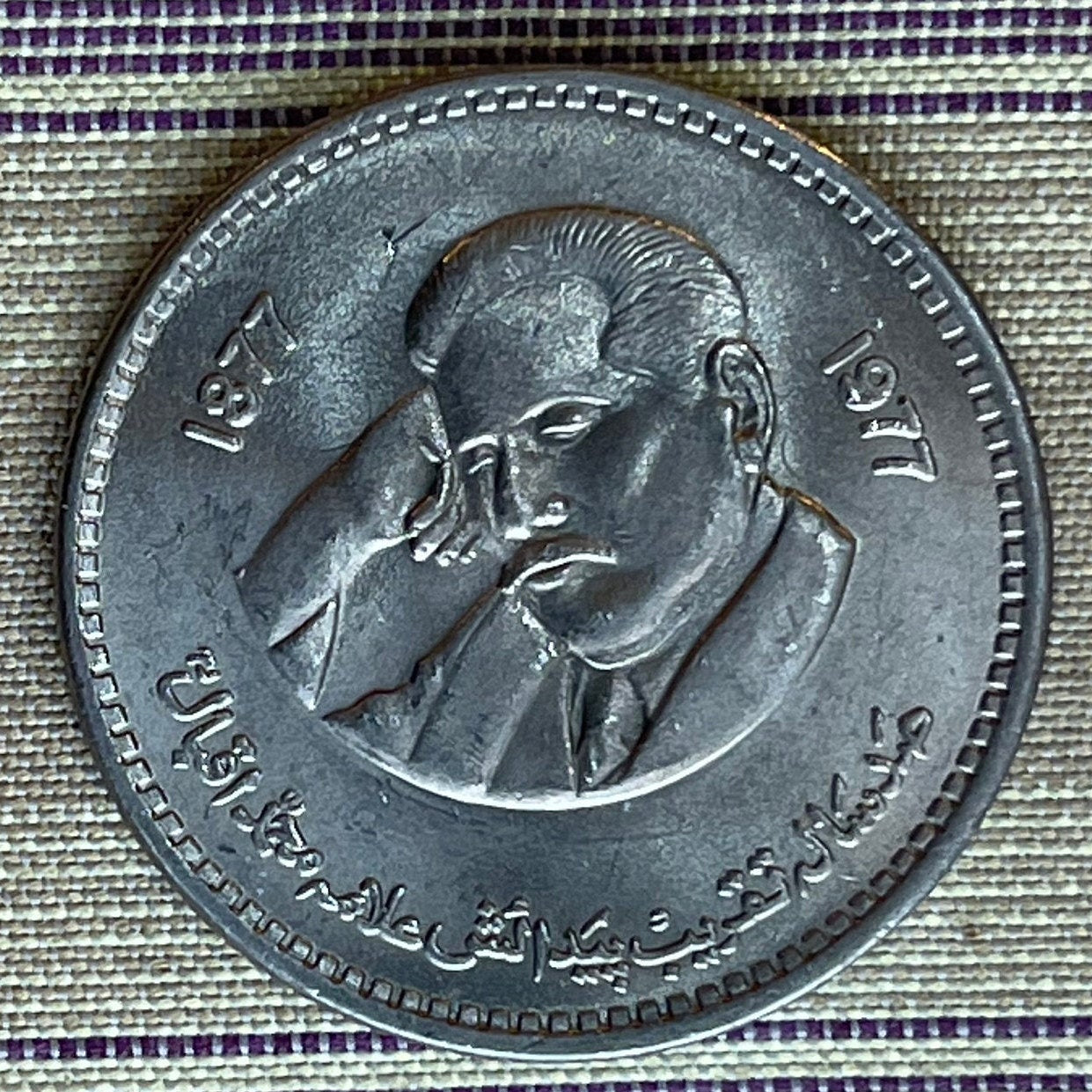elemintalshop
Allama Muhammad Iqbal 1 Rupee Pakistan Authentic Coin Money for Jewelry and Craft Making (1977) (Urdu Poetry)
Allama Muhammad Iqbal 1 Rupee Pakistan Authentic Coin Money for Jewelry and Craft Making (1977) (Urdu Poetry)
Couldn't load pickup availability
Allama Muhammad Iqbal 1 Rupee Pakistan Authentic Coin Money for Jewelry and Craft Making (1977) (Urdu Poetry)
Commemorative issue: 100th birthday of Allama Muhammad Iqbal
Obverse: Portrait of Muhammad Iqbal resting head on right hand
Lettering: 1877 1977
Reverse:Wreath below denomination and date
Lettering: 1
1977
Features
Issuer Pakistan
Type Circulating commemorative coin
Year 1977
Value 1 Rupee (1 PKR)
Currency Rupee (decimalized, 1961-date)
Composition Copper-nickel
Weight 7.5 g
Diameter 27.5 mm
Shape Round
Demonetized Yes
Number N# 9249
References KM# 46, Schön# 51
WIkipedia:
Sir Muhammad Iqbal KCSI (Urdu: محمد اقبال; 9 November 1877 – 21 April 1938) was a South Asian Muslim writer, philosopher, and politician,[4] whose poetry in the Urdu language is among the greatest of the twentieth century, and whose vision of a cultural and political ideal for the Muslims of British-ruled India[9] was to animate the impulse for Pakistan. He is commonly referred to by the honorific Allama (from Persian: علامہ, romanized: ʿallāma, lit. 'very knowing, most learned').
Born and raised in Sialkot, Punjab in an ethnic Kashmiri Muslim family, Iqbal studied in Sialkot and Lahore, and thereafter in England and Germany. Although he established a law practice after returning, he concentrated primarily on writing scholarly works on politics, economics, history, philosophy, and religion. He is best known for his poetic works, including Asrar-e-Khudi – which brought a knighthood, Rumuz-e-Bekhudi, and the Bang-e-Dara. In Iran, where he is known as Iqbāl-e Lāhorī (Iqbal of Lahore), he is highly regarded for his Persian works.
Iqbal was a strong proponent of the political and spiritual revival of Islamic civilisation across the world, but in particular in South Asia; a series of lectures he delivered to this effect were published as The Reconstruction of Religious Thought in Islam. A leader in the All India Muslim League, he envisioned—in his 1930 presidential address—a separate political framework for Muslims in British-ruled India. After the creation of Pakistan in 1947, he was named the national poet there. The anniversary of his birth (Yom-e Welādat-e Muḥammad Iqbāl) on 9 November was a public holiday in Pakistan.
Share



















